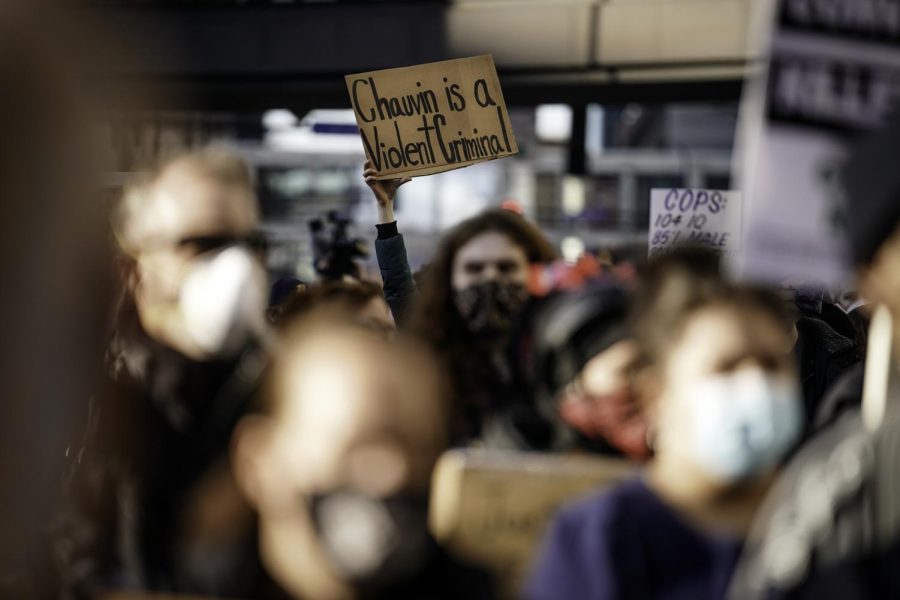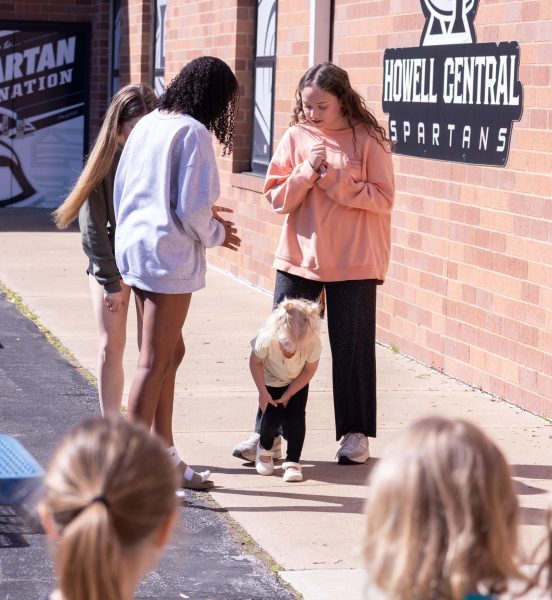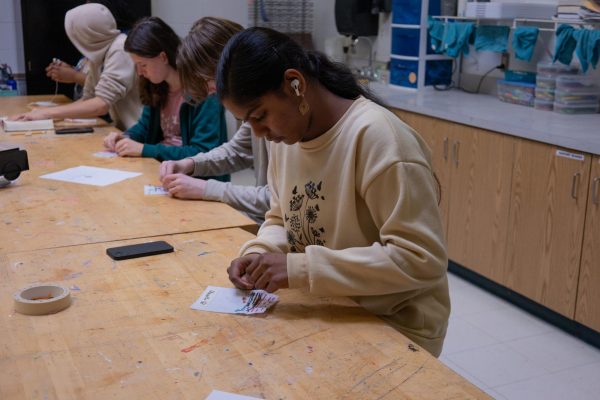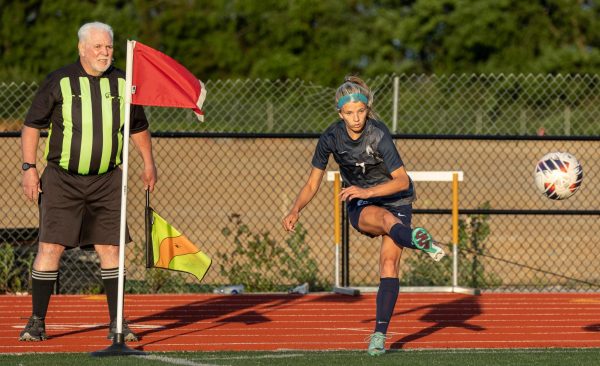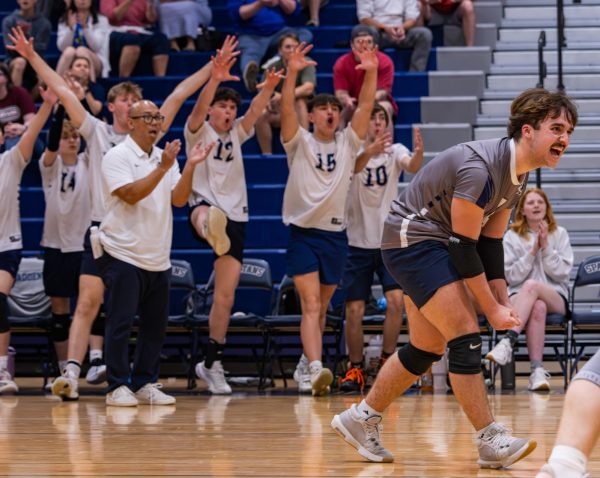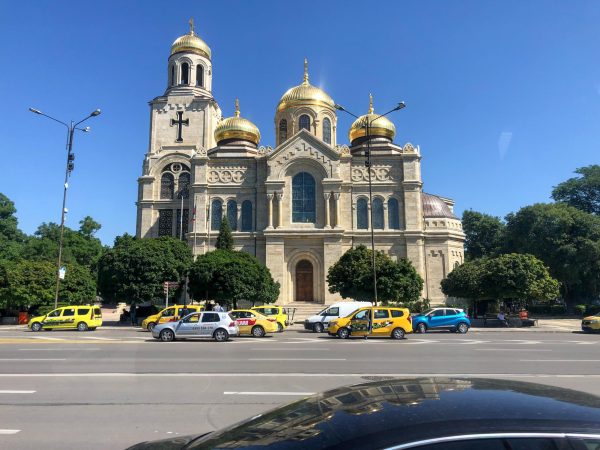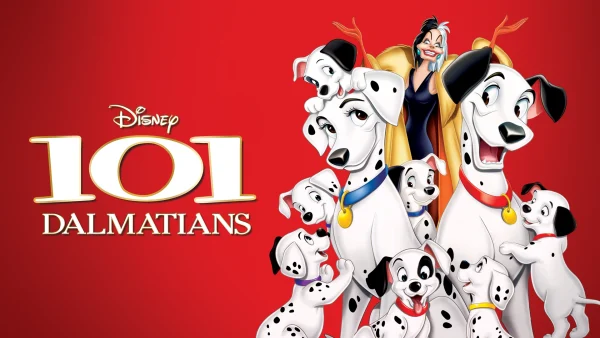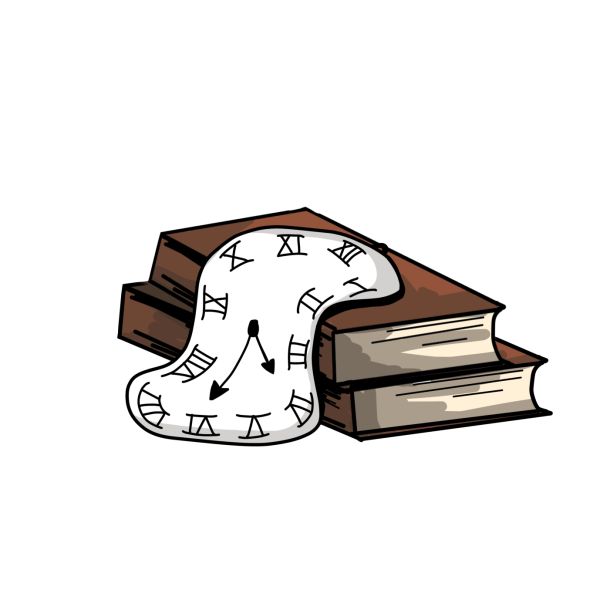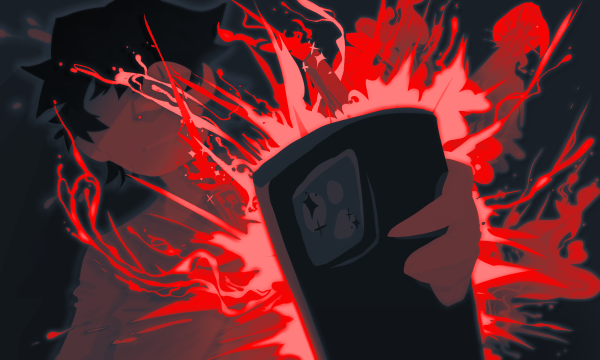He’s Guilty. Now What?
A verdict can only do so much; real progress arises from structural change.
Photo Courtesy of Wikipedia Commons
Protestors outside of Hennepin County Courthouse in Minneapolis, Minnesota on the first day of the Derek Chauvin Trial.
Thousands of eyes turned to the city of Minneapolis as they awaited the fate of Derek Chauvin. The streets of Minneapolis had been boarded up for weeks. People crowded outside the courthouse, prepared to take the streets. The National Guard stood waiting for violence to erupt. All of this in anticipation of a verdict that took 11 months to arrive. A verdict that took the jury just 11 hours to decide. A verdict that brought relief for some and for others, anger.
The second I got home from school on Tuesday I turned on MSNBC. My eyes were glued to the TV screen as I wondered if Chauvin would actually get convicted. I watched interviews with people waiting just outside the courthouse who had seen this story play out before. A black man is murdered by the police, and the officer gets a slap on the wrist (if that). The murder of George Floyd deeply angered me, but seeing the tired eyes of people who thought justice would never come infuriated me. I wished for the judge to call out the word “guilty” and immediately alleviate the pain these people were feeling.
At 4:07 p.m. Tuesday April 20, Derek Chauvin was convicted of second-degree unintentional murder, third-degree murder, and second-degree manslaughter following the killing of George Floyd on May 25, 2020. He faces up to 40 years in prison when his sentencing takes place in eight weeks. While the pain of the people outside the courthouse had not been immediately alleviated like I’d hoped, you could see that a huge burden had been lifted from their shoulders. The relief I felt when the judge read out the verdict was unforgettable, but that is not where the story ends.
A verdict doesn’t bring George Floyd home to his family. A verdict doesn’t bring justice for Daunte Wright and every other black person who has suffered violence at the hands of the police. A single verdict can never end the suffering. The Chauvin verdict is a step toward progress and change, but change is thousands of steps away.
To fix our broken system we must start at the very bottom, the front line of our justice system, we must start by reforming our police. Some Americans are granted the luxury of a trial by jury while for others, a single police officer serves as jury, judge and executioner.
Police brutality was not solved at 4:07 p.m. on a Tuesday, but this case inspired the George Floyd Justice in Policing Act that if enacted, would prohibit law enforcement from racially profiling suspects, ban chokeholds and no-knock warrants, create a police misconduct registry, and heavily restrict qualified immunity. I implore you to call your representatives and ask them to support this legislation, and if that’s not your style, do your best to educate others on it. Whether it’s having a discussion or just posting about it on your Instagram story, anything helps. Banning chokeholds may not solve all our problems, but it’s a great start.
If you want to go the extra mile, there’s more to creating lasting change than just calling your representatives. If you’re able, go to a protest or demonstration. It’s no secret that the protests in the wake of George Floyd’s murder jumpstarted the effort to charge and convict Derek Chauvin. If done responsibly, protests can foster a strong sense of urgency among lawmakers for any cause you support.
Injustice happens all around us, and if you see it, point a camera at it. Film it, livestream it, record the audio even. Without Darnella Frazier’s video of the murder of George Floyd, the verdict could just have easily been “not guilty.” When we call out injustice we help stop it.
The case of Derek Chauvin and George Floyd isn’t America’s wake-up call; we’ve just been hitting snooze for far too long
Your donation will support the student journalists of Francis Howell Central High School. Your contribution will allow us to purchase equipment and cover our annual website hosting costs. FHCToday.com and our subsequent publications are dedicated to the students by the students. We hope you consider donating to allow us to continue our mission of a connected and well-informed student body.




